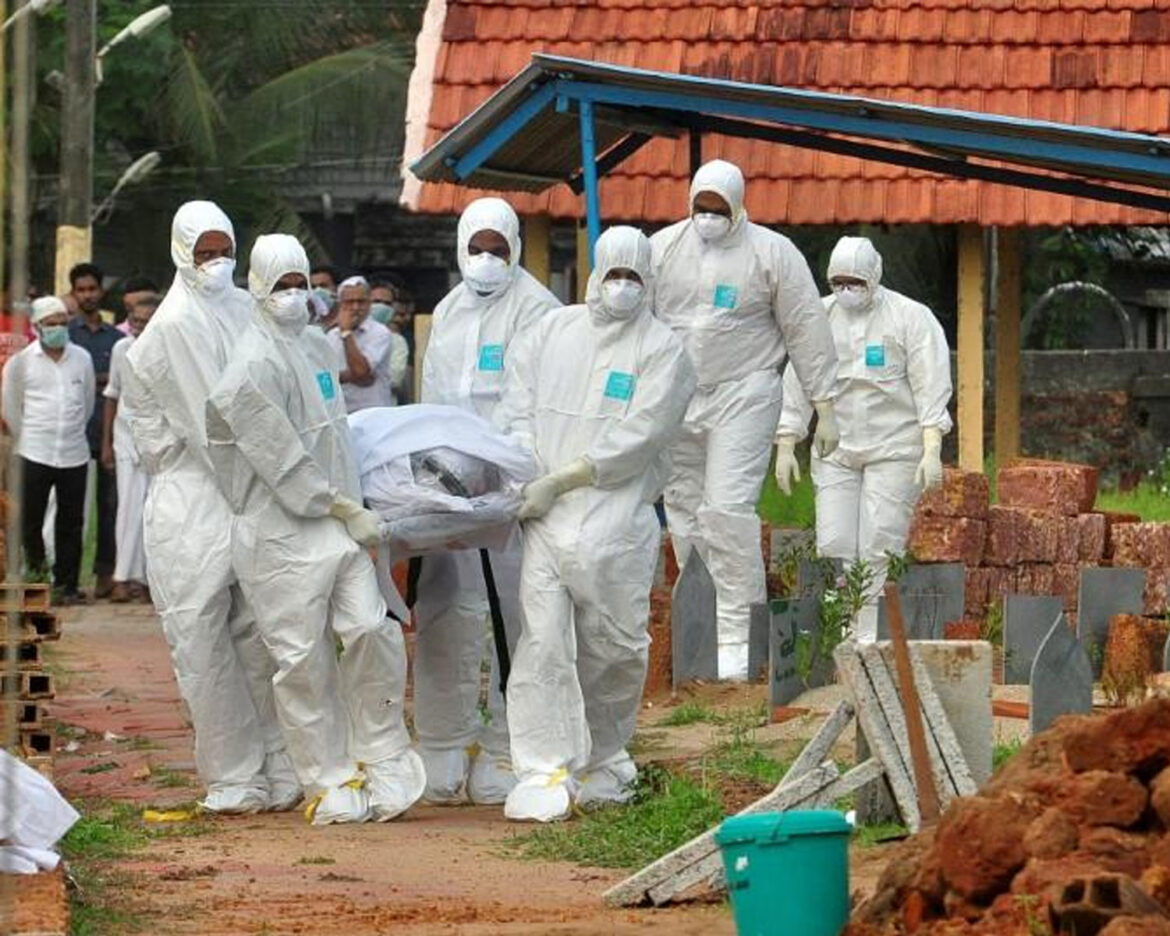In a race against time to curb the spread of the rare and deadly Nipah virus, the southern state of Kerala in India has taken drastic measures, including the closure of schools, offices, and public transport. The outbreak, which has already claimed the lives of two individuals, has raised concerns among health authorities.
An adult and a child remain hospitalized, battling Nipah virus infection, while over 130 people have undergone testing for the virus. The virus is known to spread through contact with the bodily fluids of infected bats, pigs, or humans, according to state health officials.
Health Minister Veena George emphasized the importance of early contact tracing and isolating individuals displaying symptoms. She also revealed that the virus strain detected in Kerala is the Bangladesh variant, which has a higher mortality rate in humans but is historically less infectious from person to person.
To contain the medical crisis, public movement has been restricted in certain areas of the state, and containment zones have been established in at least seven villages within the Kozhikode district. Strict isolation measures are being enforced, and medical personnel are being quarantined if they come into contact with infected patients.
The first victim, a small-scale farmer in the village of Marutonkara, was identified as the initial source of the outbreak. Authorities have been retracing the victim’s movements to identify potential contacts and locations visited prior to the onset of symptoms. The victim’s daughter and brother-in-law, both infected, are currently in isolation, and their family members and neighbors are undergoing testing.
The second death was linked to contact with the first victim in a hospital setting, although the two individuals were not related, according to an anonymous government official.
To address the escalating crisis, three federal teams, including experts from the National Virology Institute, arrived in Kerala to conduct additional tests and survey the fruit bat population in the affected villages.
The Nipah virus was first identified in 1999 during an outbreak in Malaysia and Singapore. Outbreaks of the virus are sporadic, with previous infections in South Asia occurring when people consumed date-palm sap contaminated with bat excreta. Kerala has experienced four Nipah outbreaks since 2018, with the first outbreak resulting in a high mortality rate.
In May, a Reuters investigation highlighted parts of Kerala as among the global hotspots at risk for outbreaks of bat-borne viruses due to extensive deforestation and urbanization, which have increased human-wildlife interactions.
Efforts are now underway to contain the Nipah virus outbreak and prevent further casualties, with health authorities and experts working tirelessly to mitigate the situation in Kerala.



